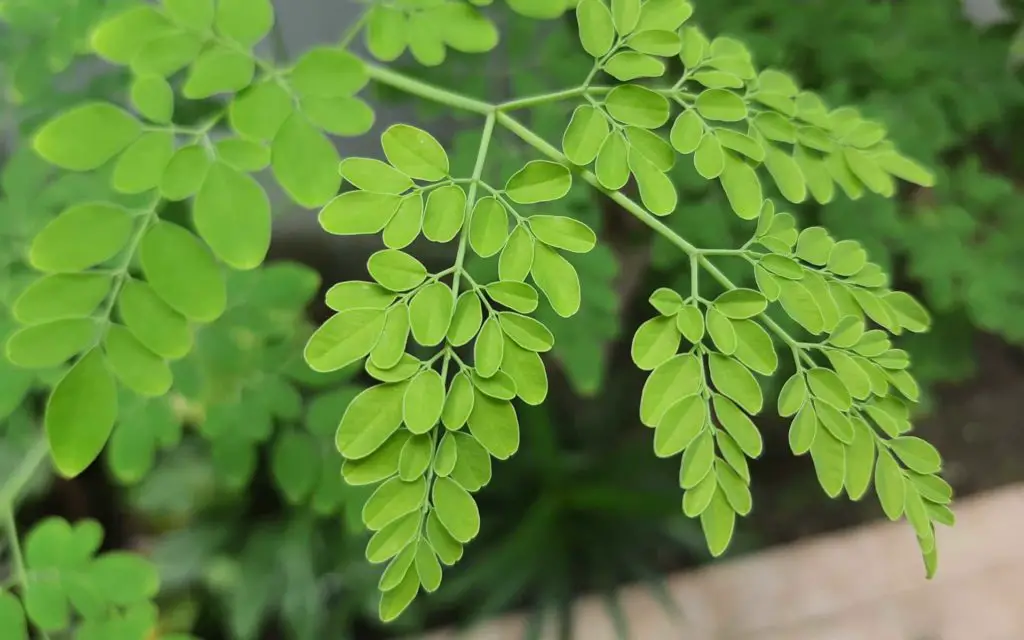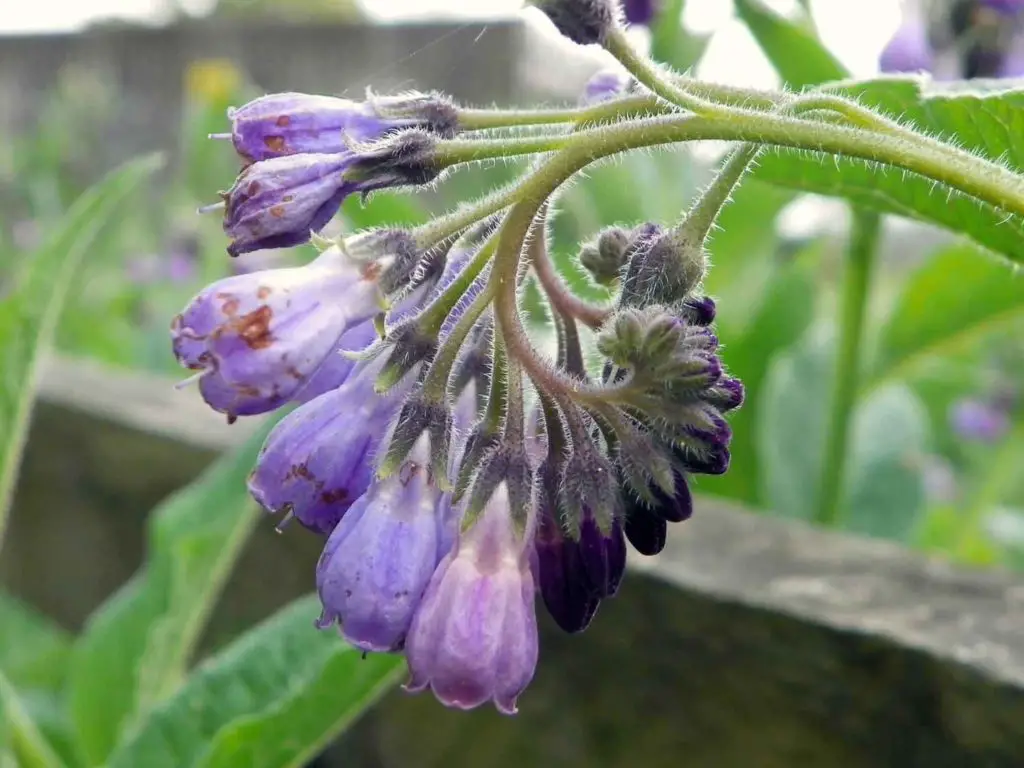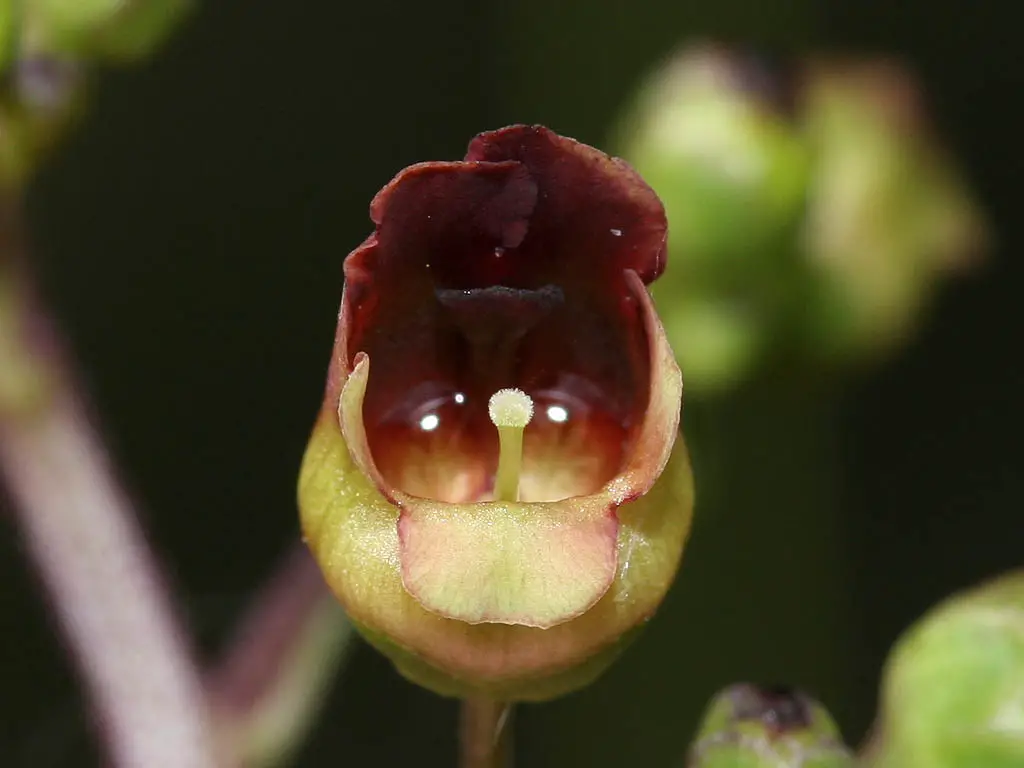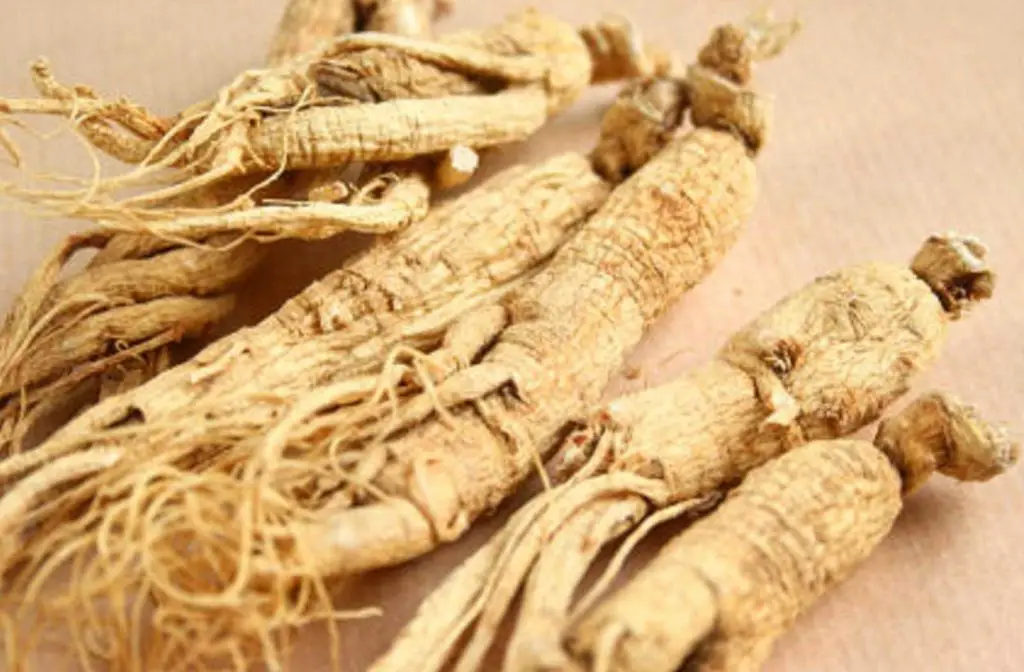What Is Moringa
Moringa oleifera is known by its various common names, such as ben oil tree, benzolive tree, drumstick tree, horseradish tree, West Indian ben, murungai, moringa ailée, malunggay, marum, or simple moringa. [1]
The origin of this plant is a blur, but many experts believe that this plant emerges from the solid of India, Africa, and the Philippines. Experts believe that the plant’s spread and introduction to America and Europe were primarily due to the long history of Spanish colonization in the Philippines. [2]
Historical records suggest that this plant occurred naturally in the Caribbean, Mexico, and Central America. [2] Moringa steadily grows at a much slower rate in colder countries while it flourishes in more tropical regions. [3]
The tree can grow to about 10 to 12 meters or about 33 to 39 feet tall. Moringa leaves are 90 cm long, arranged in tripinnate formation, and spaced about 5 cm apart up the central stalk. Moringa is also known to grow a thinly-veined, yellow-white flower on the slender stem of the plant. [3][4]
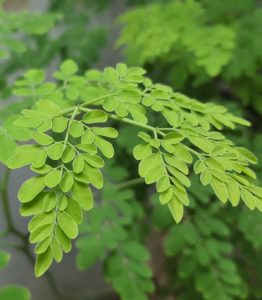
Moringa Benefits and Uses
Many cultures around the world use moringa. Many historical records align with current scientific research about the benefits of moringa. This super plant is known to treat various skin conditions, weight problems, diabetes, anemia, and even kidney function disorders. [5]
Weight Loss
One of the benefits of moringa that is most popular in current times is its effect on weight loss. Moringa contains many saponins, tannins, flavonoids, glycosides, and terpenoids, making it an effective weight management tool. [6]
In a research conducted by Kilany et al., they tested 48 male Sprague Dawley rats to identify the anti-obesity effects of Moringa oleifera seed oil extract. In their study, the team found that M. oleifera extracts reduced leptin and resistin. They also found that moringa promoted antioxidant enzymes and reduced lipid peroxidation. [6]
In other words, moringa shows a promising effect in terms of weight loss management.
Blood Pressure
High blood pressure is one of the leading causes of cardiovascular diseases. This occurs when the force of your blood flow is too high against the walls of your arteries. Moringa is known to lower blood pressure effectively. [5][7]
In a study to effectively understand how moringa affects blood pressure, male Wistar rats were given L-NAME to induce hypertension. The researchers then administered Moringa oleifera extracts to the symptoms and alleviated hypertension in rats. The study found that moringa extracts produced antioxidants and decreased plasma MDA levels, effectively managing the rat’s rising blood pressure. [7]
Boost Breastmilk Production
Moringa is also known to be a significant galactagogue. [8] Galactagogues are substances that help promote lactation or milk production in nursing mothers. There have been several studies aimed at understanding this effect of moringa. [9]
In a proposed double-blind study by King Chulalongkorn Memorial Hospital’s Department of Obstetrics and Gynecology, the research team theorized that moringa leaves could help promote milk production in nursing mothers. [9]
Moreover, there have been successful animal trials that suggest that moringa is an effective galactagogue. [9]
Hair Health
Moringa oleifera oil has been incorporated into many personal care products because of its manifold benefits. One of its well-known benefits is its effect on hair health. [5][10]
Moringa oleifera oil is a known source of biotin. [11] Biotin is a water-soluble vitamin that is also known as VitaminB7. This vitamin is essential in the metabolism of fats and proteins. Moreover, biotin is also responsible for cell growth and the production of fatty acids. All these functions play an essential role in keeping your hair healthy and strong. [12]
Arthritis
Moringa is also known to be an effective anti-arthritic agent. Arthritis is a condition that is characterized by the inflammation of your joints. This condition can be excruciating and debilitating. [14] Moringa has anti-inflammatory properties that can help reduce the symptoms of arthritis. [13]
Moringa has been traditionally used to treat arthritis. In a study by Mahdi et al., the research team aimed to determine the efficacy of moringa in treating arthritis. The team found that moringa had a promising effect in stopping the development of arthritis. Moreover, the study found that moringa was also able to alleviate the symptoms of arthritis effectively. [13]
Moringa Side Effects
Although moringa-derived products are generally safe for use and consumption, limited toxicity studies show moringa’s side effects. All of these studies point out that excessive ingestion of moringa-derived products can produce various toxicity effects.
These side effects include gastrointestinal issues, allergic reactions, and heart rate slowing. Ingesting large amounts of moringa-derived products can also result in low blood sugar levels. [15][16] Therefore, it is important to consult with your healthcare provider before taking any moringa-derived products.
Researchers determined that Moringa oleifera products are generally safe at less than or equal to 1,000mg/kg of body weight. Anything over 3000 mg/kg of body weight can have adverse effects. [17]
Moringa Drug Interactions
Moringa is also contraindicated when using CYP450/CYP3A4 medications and sitagliptin. [16]
- Using moringa while taking CYP450/CYP3A4 drugs can result in adverse drug interactions and enhance the drug’s unwanted effects. These drugs include certain antidepressants, heart medications, and anticancer drugs.
- Taking moringa with sitagliptin can also result in low blood sugar levels. Furthermore, moringa could also dampen the therapeutic effects of sitagliptin.
- Although moringa is a known galactagogue, pregnant or lactating women are advised to consult with a doctor first before taking moringa-derived products. There is limited evidence demonstrating the safety of moringa during pregnancy and lactation. Therefore, it is best to be cautious when taking moringa-derived products during these periods. [16]
Moringa Usage
Moringa has been a part of many cultures for centuries now. Some cultures use moringa as a garnish to their dish; some use it as a tea, while others use it as a supplement. Moringa can be used in many different ways. The leaves, pods, flowers, and seeds of the moringa tree can all be consumed.
In terms of dosage, health and nutrition experts recommend that at least 6 to 10 grams of moringa or moringa supplements be taken daily by mouth. [18] However, different people may experience varying effects from this plant. Therefore, seeking medical advice from a healthcare provider is still the best way to determine the most appropriate dose for you.
How To Prepare Moringa Leaves for Drinking
There are many ways you can use moringa for drinking. Two of which are popular because they are efficient and easy to do. [19]
The first way is by blending the moringa leaves into a fine powder:
- First, gather a generous amount of moringa leaves and wash them for any visible impurities.
- Next, leave them out to dry. Once completely dry, you can blend them until the leaves are turned into a fine powder.
- You can use this powder to make tea or add it to your smoothies. You can also add this powder to your food to increase its nutrient content.
The second way is through steeping moringa leaves:
- Again, you’ll start by gathering a generous amount of moringa leaves and washing them for any visible dirt.
- Next, dry the leaves and put them in a teapot or teacup.
- Pour boiling water over the leaves and let it steep for about 5 minutes. After steeping, remove the leaves, and you can now drink the tea as is or add honey or lemon to improve the taste.
FAQS on Moringa
How Long Does It Take for Moringa To Start Working
Many factors could affect the therapeutic efficacy of moringa in an individual. Factors such as the intended use, the person’s age and health condition, other medications being taken, and diet can affect how long it takes for moringa to work.
Generally, medical experts record that a healthy adult could experience the benefits of moringa after [18]:
- For asthma relief: 3 weeks for individuals taking 3 grams of moringa two times a day.
- For weight gain for HIV/AIDS patients: 6 months after taking moringa leaf powder after every meal.
- For breastfeeding: 1 week of daily intake.
- For treatment of menopausal symptoms: 2 months of daily ingestion of moringa leaf powder.
Is Moringa Good for Dogs
Yes, moringa is suitable for dogs. Moringa contains a wealth of nutrients that can benefit your dog’s health. These nutrients include vitamins, minerals, antioxidants, and amino acids.
Moringa can help improve your dog’s digestion, boost their energy levels, and support their immune system. Furthermore, moringa can also help improve your dog’s skin and coat health. [20]
Nutrition Facts for 1 Teaspoon of Moringa Powder
A teaspoon of moringa powder has:
- 25 mg of protein
- 0.5 mg of iron
- 0.8g total carbs
- 0.4g net carbs
- 0g fat
- 4 calories.
Are Moringa Seeds Edible?
Yes, moringa seeds are edible. Moringa seeds can be eaten raw, roasted, or powdered. You can also add them to soups and stews. Moringa seeds are a good source of protein, vitamins, and minerals. They are also rich in antioxidants and anti-inflammatory compounds. [21]
Furthermore, moringa seeds can help lower blood sugar levels, reduce inflammation, and boost liver health. [21]
Sources
- https://npgsweb.ars-grin.gov/gringlobal/taxon/taxonomydetail?id=24597
- https://cabi.org/isc/datasheet/34868#tohistoryOfIntroductionAndSpread
- https://www.fs.fed.us/global/iitf/pubs/sm_iitf061%20%20(6).pdf
- http://apps.worldagroforestry.org/treedb/AFTPDFS/Moringa_oleifera.PDF
- https://www.ncbi.nlm.nih.gov/pmc/articles/PMC7430547/
- https://www.ncbi.nlm.nih.gov/pmc/articles/PMC7499387/
- https://pubmed.ncbi.nlm.nih.gov/30668387/#:~:text=NAME%20hypertensive%20rats-,Moringa%20oleifera%20leaf%20extract%20lowers%20high%20blood%20pressure%20by%20alleviating,%3B54%3A9%2D16.
- https://www.ncbi.nlm.nih.gov/pmc/articles/PMC8023461/#funding-group-1title
- https://www.healthline.com/health/galactagogues
- https://www.researchgate.net/publication/267932962_Health_Benefits_of_Moringa_oleifera
- https://timesofindia.indiatimes.com/life-style/beauty/hair-tips-benefits-of-moringa-in-haircare/articleshow/83573945.cms#:~:text=Moringa%20is%20rich%20in%20amino,a%20rich%20source%20of%20Biotin.
- https://www.healthline.com/health/the-benefits-of-biotin
- https://www.ncbi.nlm.nih.gov/pmc/articles/PMC5884001/#:~:text=The%20animal%20groups%20that%20were,the%20prevention%20of%20RA%20development.
- https://www.mayoclinic.org/diseases-conditions/arthritis/symptoms-causes/syc-20350772#:~:text=Arthritis%20is%20the%20swelling%20and,are%20osteoarthritis%20and%20rheumatoid%20arthritis.
- https://www.asbestos.com/blog/2019/11/26/moringa-tree-cancer-research/
- https://www.mskcc.org/cancer-care/integrative-medicine/herbs/moringa-oleifera
- https://pubmed.ncbi.nlm.nih.gov/22101359/#:~:text=Moringa%20oleifera%20is%20genotoxic%20at,%E2%89%A4%201%2C000%20mg%2Fkg%20b.
- https://www.webmd.com/vitamins/ai/ingredientmono-1242/moringa
- https://greenlivingzone.com/how-to-prepare-moringa-leaves-for-drinking/#2_Dry_out_your_leaves
- https://animalwellnessmagazine.com/moringa/
- https://www.fao.org/traditional-crops/moringa/en/#:~:text=All%20parts%20of%20the%20moringa,and%20eaten%20fresh%20or%20cooked.

